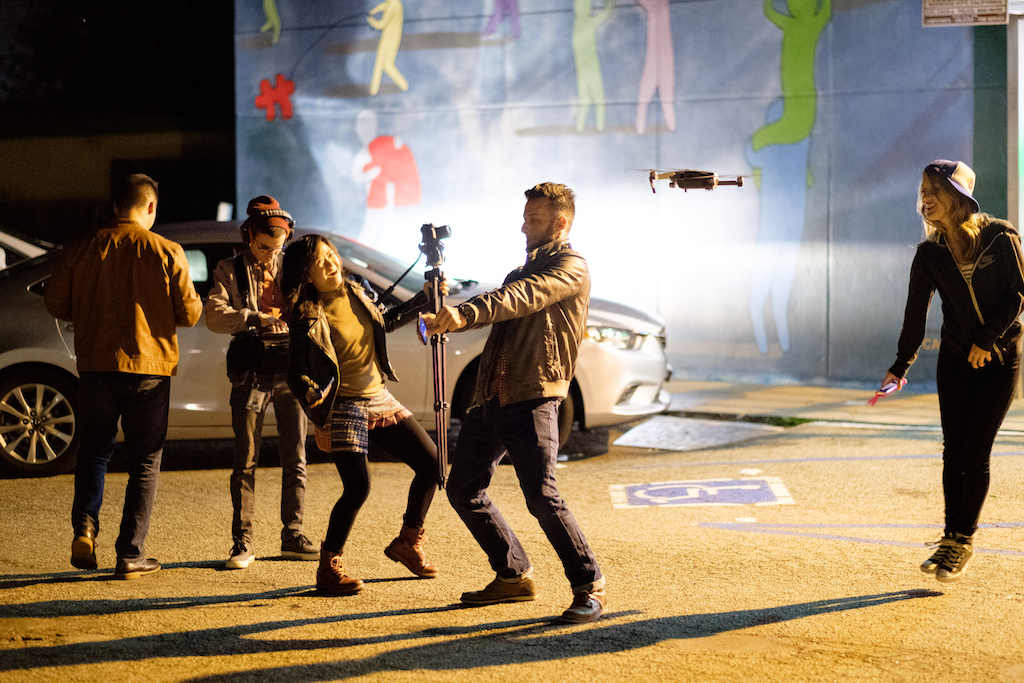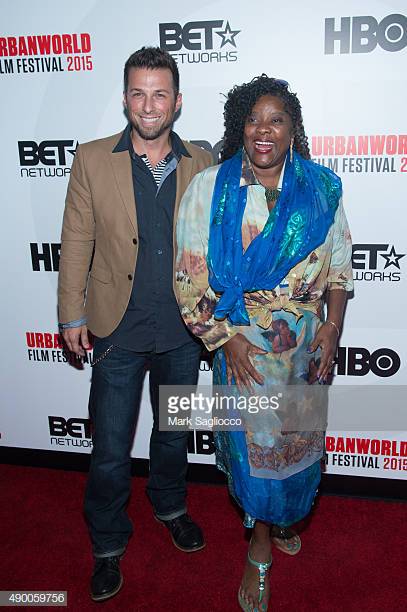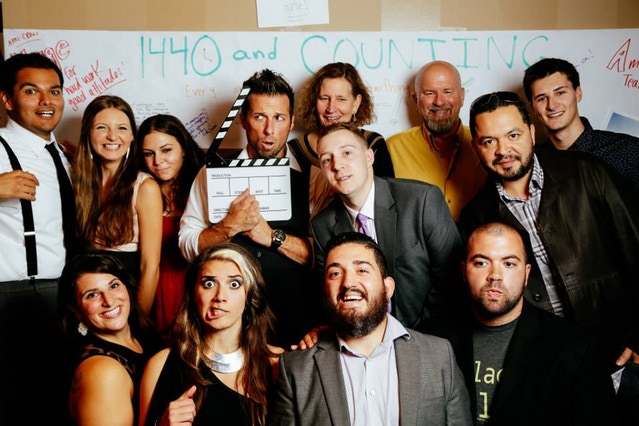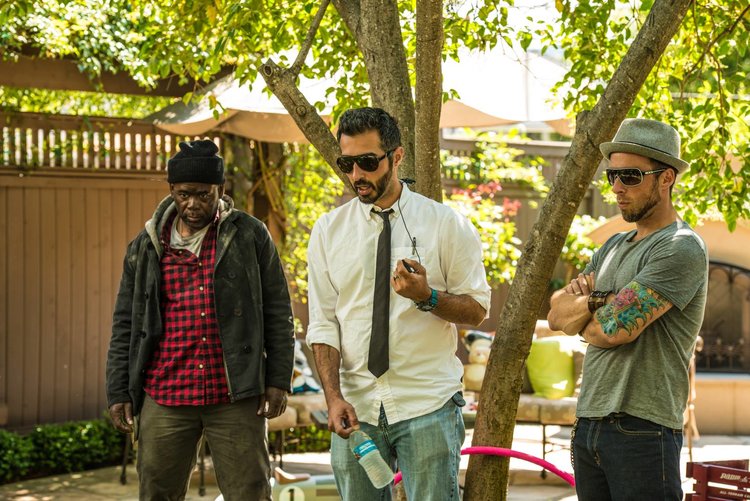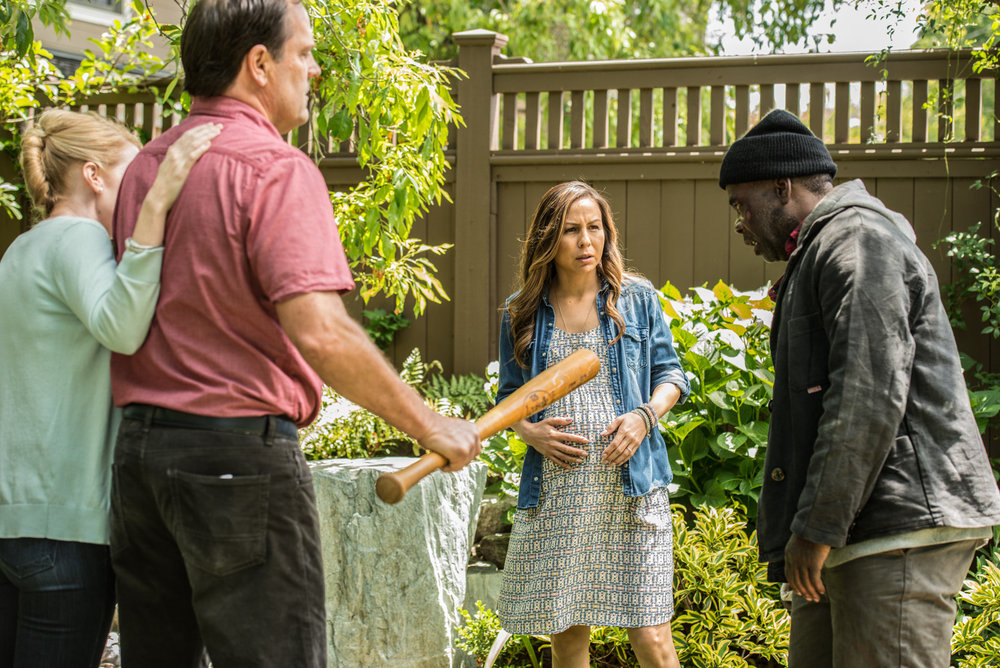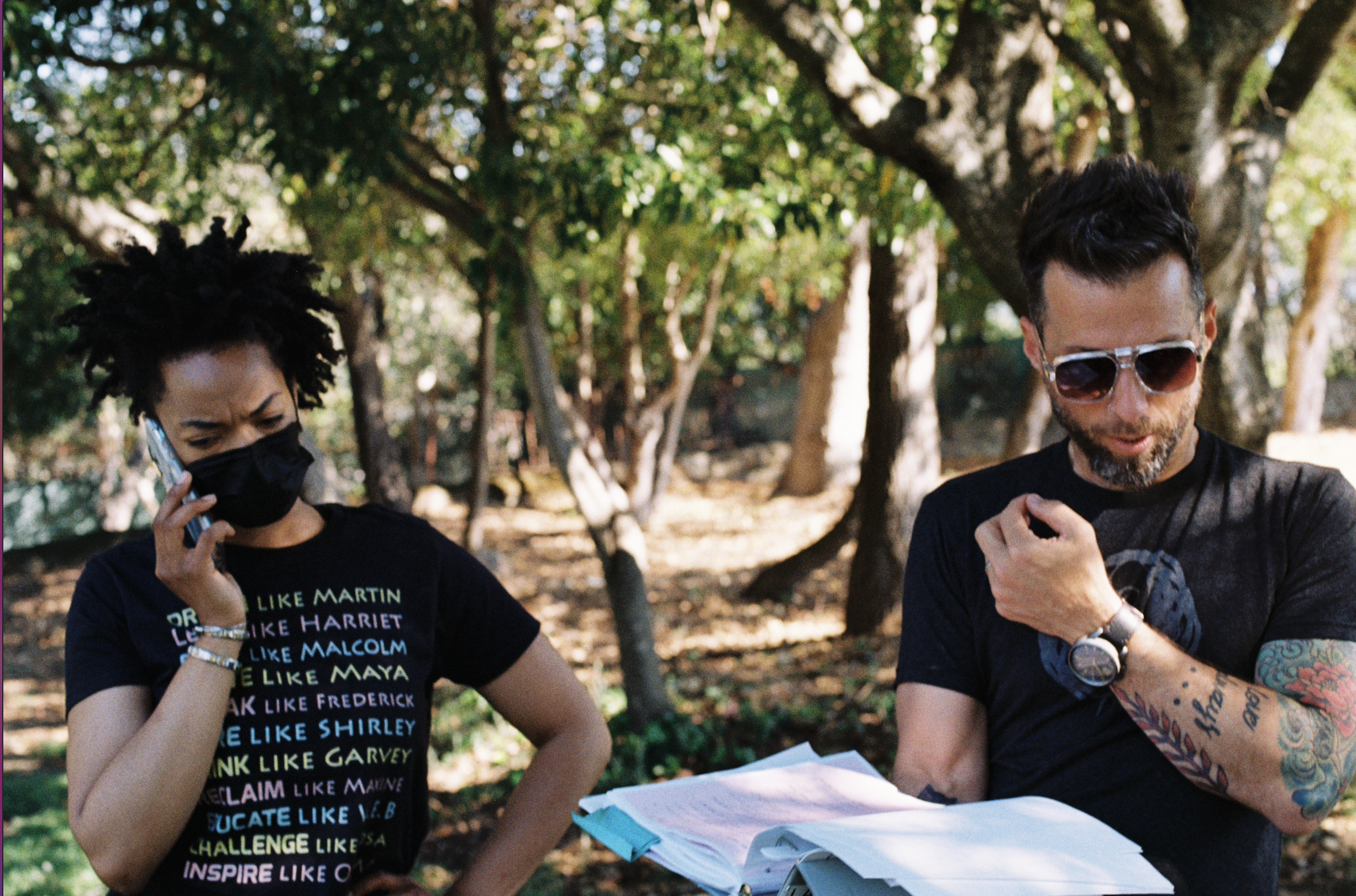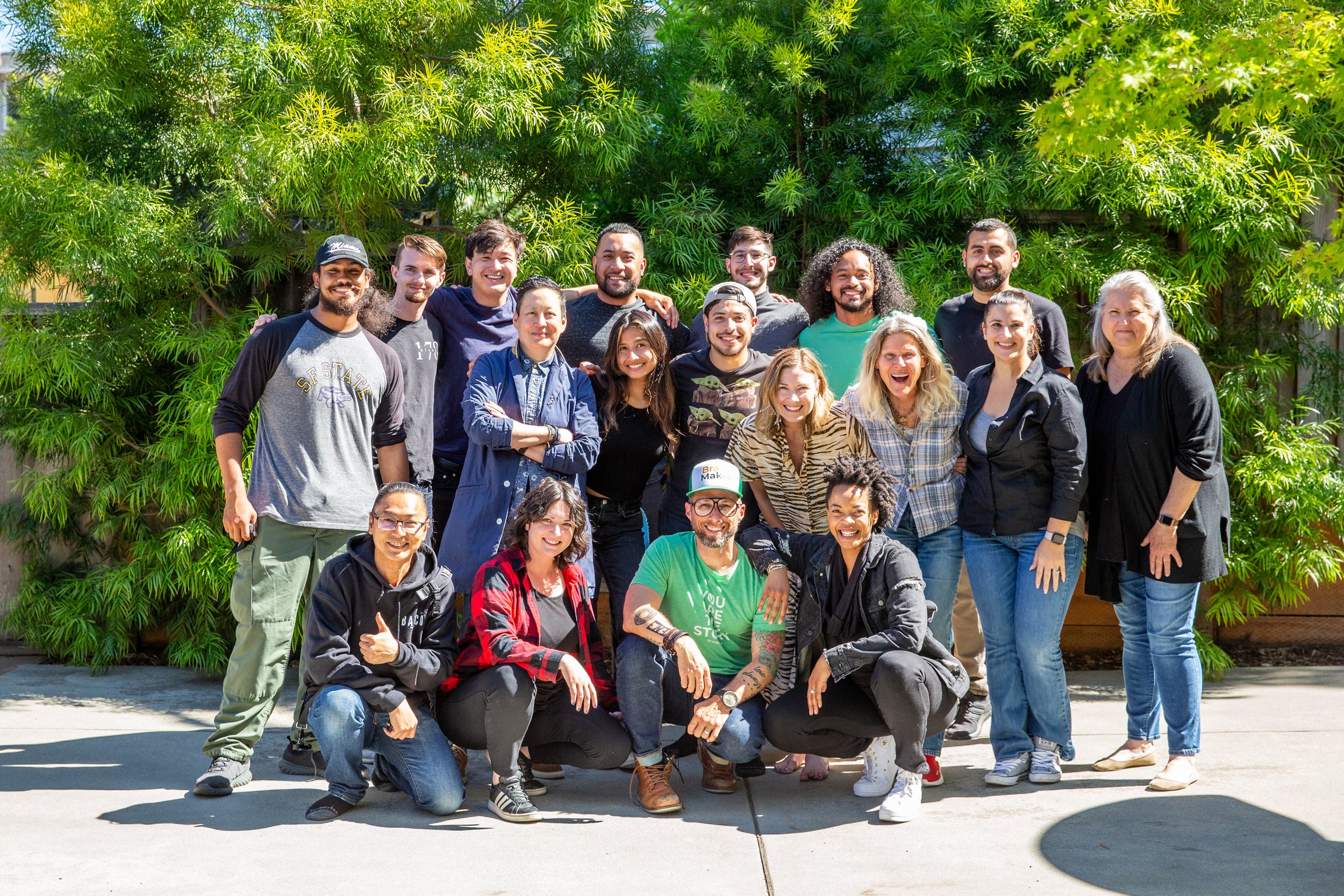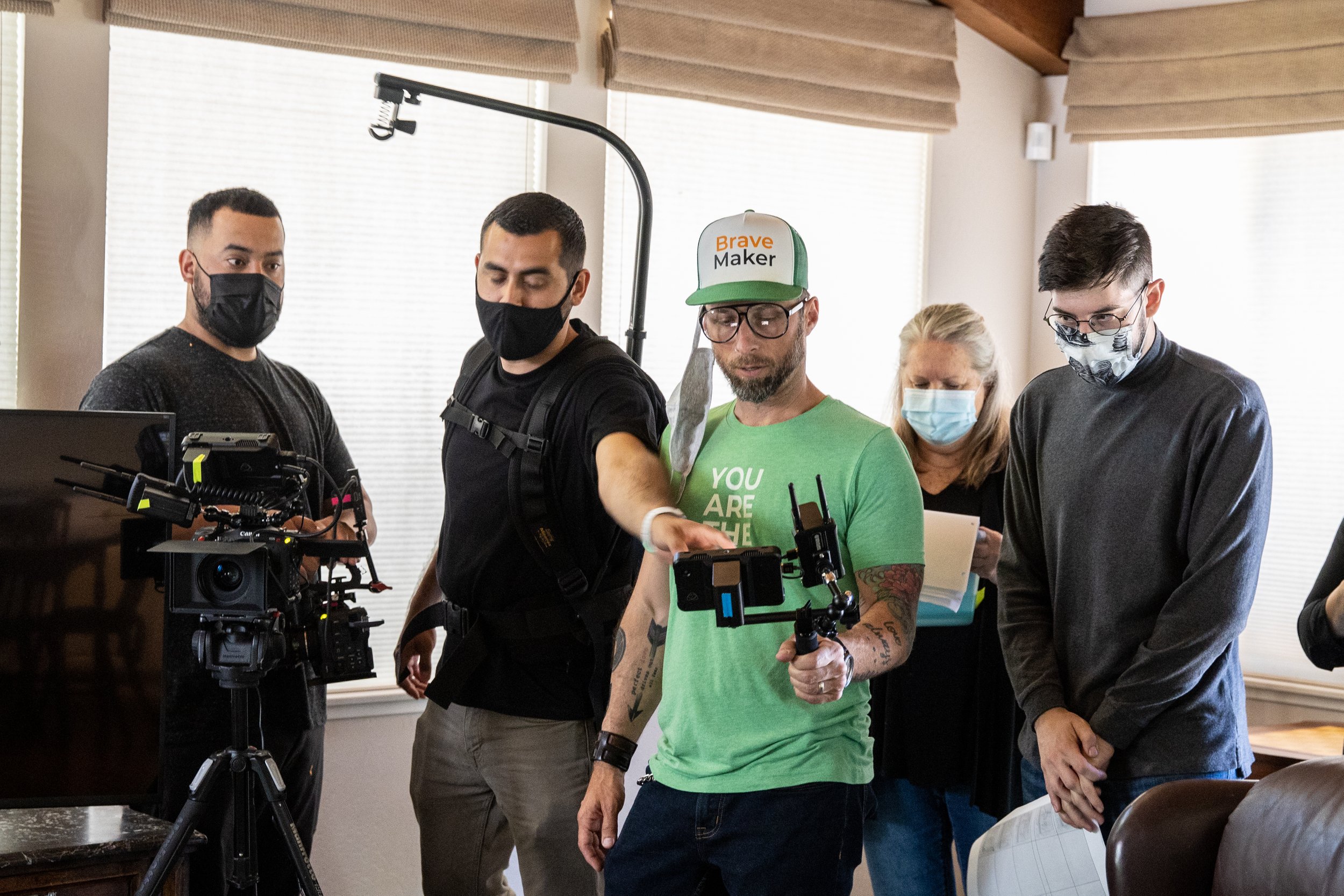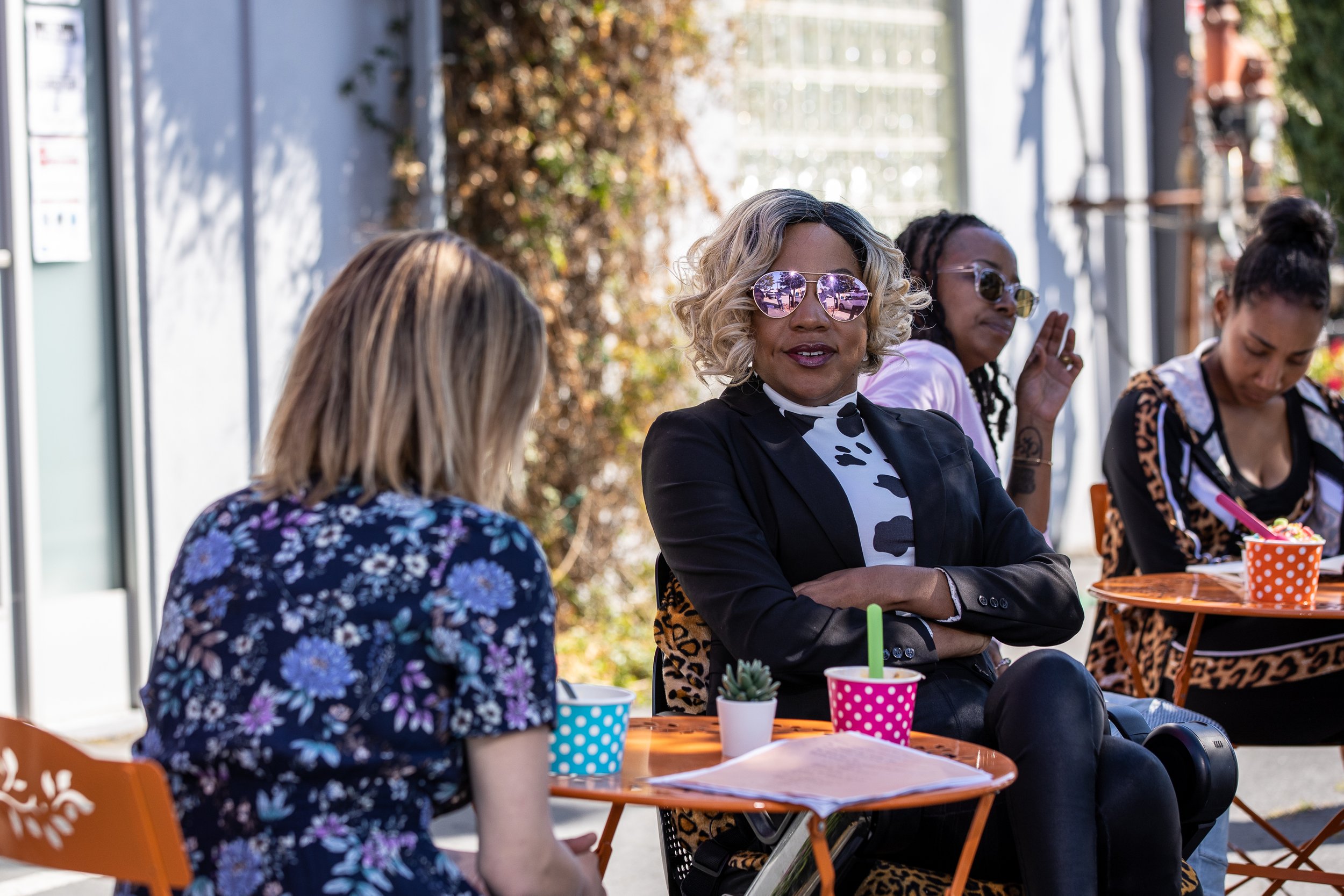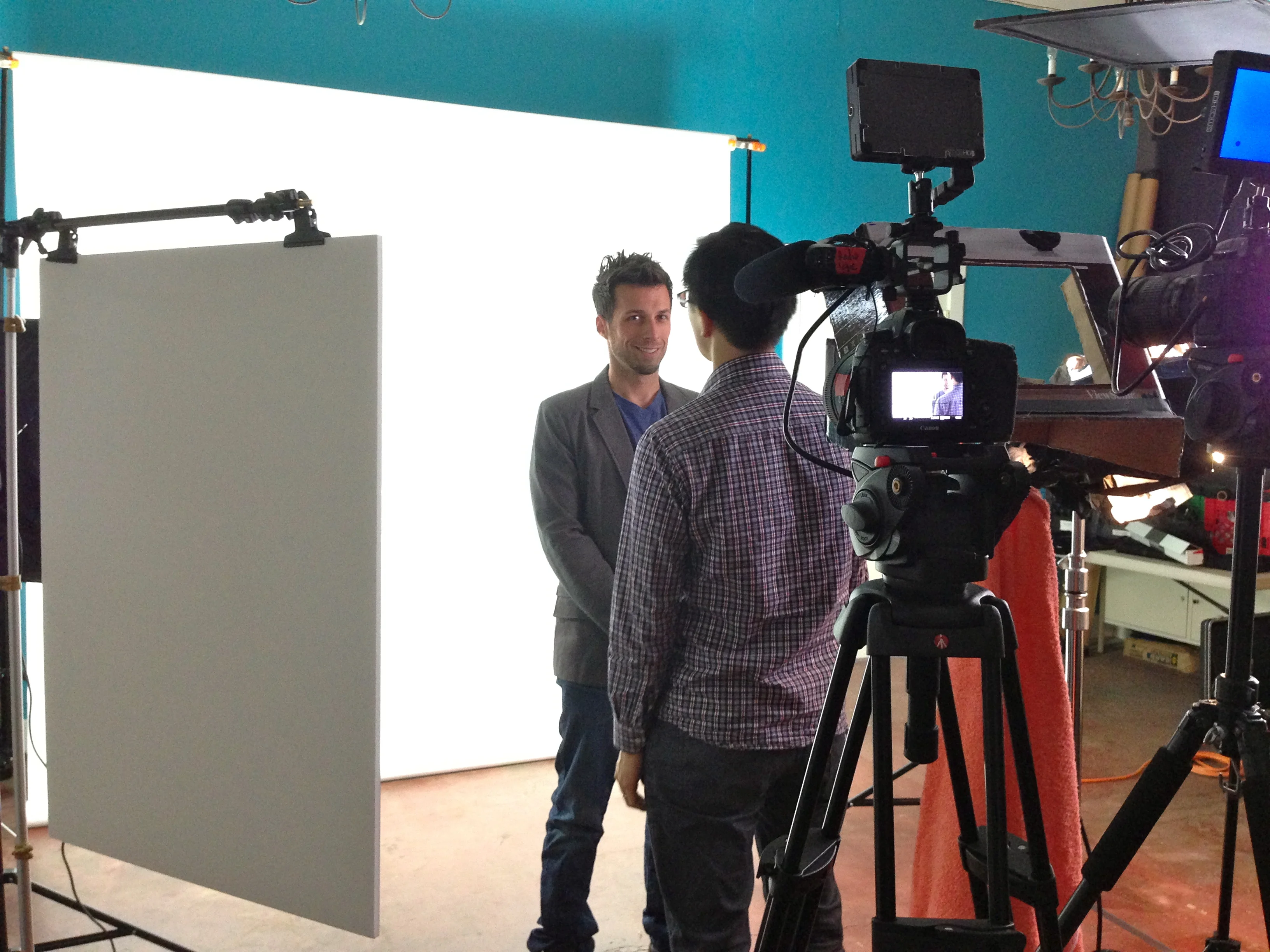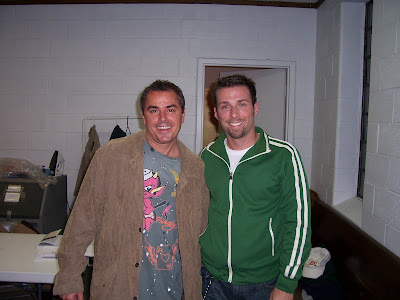When I did my first campaign, I totally under estimated the amount of work. And I started with a plan, a good plan, so I thought. But you have to work that plan and keep the momentum going for all four weeks of your campaign. (I did a thirty day Kickstarter).
So...make a list of your friends, your family, your neighbors, your former teachers, your parent's friends, your co-workers, your pastors...tell them IT'S COMING. Tell them you need them. Tell them you want to make a coffee date with them..and then PITCH the hell out of them! Share your passion. Tell them how excited you are that THEY can be a part of this something BIG you are about to give birth to...(to weirdly descriptive? Yes! Well, it's kinda true. Making movies is messy and awkward, like becoming a parent, and I love it.
My first film I had 162 people give me my $40,000. (That's about $308 per person. But most people gave $25-$100. It's the generous amazing ones that blessed me with $5,000 each. I had a small handful of them. Completely surprised and blessed me).
My second film was a bigger ask of $50,00 (which ended up being about $57,000). It came from 122 people. Do that math. That's about $400+ a person.
I am a social media monster and habitual texter...100%. I love the quickness of sending message where I don't have to do small talk. I'm over small talk. I rarely talk on the phone with people anymore unless they are my family and wanting to fund MY projects. When someone calls me I think it’s super important— like an emergency ER visit or they are hanging off a cliff somewhere.
But I had to break this personal code to raise funds.
BUT Let me say this again. You WILL NOT raise your money if you ONLY POST ON FACEBOOK, TWITTER and INSTAGRAM. You will use these mediums (a lot) but you have to talking with people face to face. Yes email, text are great but YES CALL PEOPLE. ON THE PHONE. (Edited during Covid-19 2020, Use Zoom!).
If you are the producer or the director will have to work harder than everyone else to raise funds for a project (and it can be very lonely).
Don't expect anyone else to care about your film as much as you. I often found myself disappointed that others weren't working as hard as I thought I was to raise the money, but I had to accept that everyone couldn't match my enthusiasm. It as an unhealthy expectation to have. When I released it, I was able to focus better and work harder. I've seen one too many producers/writers/directors get lost in complaints and excuses when trying to launch their film because they spend all their time ordering others around to do their work or expecting their team to bring the money in. Usually it comes down to that one person who is seen as the leader of the film who does the most work.
In the end it all comes down to your ability to woo people into your story, your passion, and ability to make the money back (if it's a feature).
If it's a short (which never makes money back), your donors have to know WHY they should give to your film.
When I look back at my fundraising efforts, it really came down to people believing in ME. 80% of all my funds came from people who knew me personally (friends, family, community, neighbors)and wanted to support me. The stories I was telling were important and some donors gave because they themselves were passionate about social justice issues, but the majority of my supporters gave because they wanted to support ME and the believed in my passion, my vision, and wanted to support the story that I wanted to tell. That's amazing!? 10-20% of my donors came from friends of friends, or friends of family, but they were few and far between.
And for that I am so grateful for the people who gave me a shot, who believed in me, and who gave so generously. Now I am making my way into FEATURE FILMMAKING and it's a whole new experience.
Here's some of my fundraising videos if you want to see how I told the story.
This is the first one I ever did and you can see the quality is REALLY poor but it did the job! I acted and produced this piece. It was quite the learning experience on how to make a film.
Tester (2011 $1380)
I loved doing the 1440 video. This was my first foray into writing and directing. I wanted to re-create the story a bit (and it radically changed from this pitch video to production) to give our donors a little proof of concept. I did all these videos with my friends and community. It was a great experience working with actress Loretta Devine and I made a life-long friend and creative partner in actor Jeremy Ray Valdez. This short gave me the drive and passion to go full time into filmmaking.
1440 and Counting (2014, $40,936)
I couldn't wait to make another film after 1440 and Counting. The unique thing about NEIGHBOR was that I partnered with a great non-profit in my city, THE REDWOOD CITY PARKS AND ARTS FOUNDATION, and they allowed me to raise my funds as my fiscal sponsor which enabled every donor to get a tax deduction. This was HUGE. I also used a different platform called CROWD-RISE which took less of a cut than Kickstarter because I was working with a non-profit.
Neighbor (2016, $57,349)
The last film I did was SELF.IE. My friend Lydia and I set out to raise $3000 and we used SEED & SPARK which has become my favorite. They are very film friendly (they only fundraise for films unlike Kickstarter which does inventions, books, music, etc) and they super supportive. Based on what I learned doing bigger crews and larger budgets I didn't want to wait to make another film. I was very encouraged to do something with a skeleton crew and do it as cheaply as I could. It has a different look and a different feel.
Self.I.E (2017, $3,175)
